TPS (Toyota Production System) is based on the two basic concepts of “Just-in-time”, the concept to produce “what you need, when you need it, as much as necessary” without stagnation and “Jidoka(autonomation)”, the concept that prevents from producing defective products by stopping equipment immediately when an abnormality occurs.
The direct effect on management by eliminating waste at the shop floor and creating a structure to generate profits has been demonstrated a great results as the ultimate production system in various industries.
Solve these issues
with TPS (Toyota Production System)
ISSUE






3 points
for TPS (Toyota Production System)
FEATURES
-
1
Thorough elimination of waste

-
TPS thoroughly eliminates various types of waste in machines, equipment, and operators.
-
2
Jidoka (Autonomation)

-
“Jidoka” in TPS is to realize the system that the machine automatically stops when an abnormality occurs.
-
3
Just-in-time

-
“Just-in-time” is the concept to produce “what you need, when you need it, as much as necessary” without stagnation.
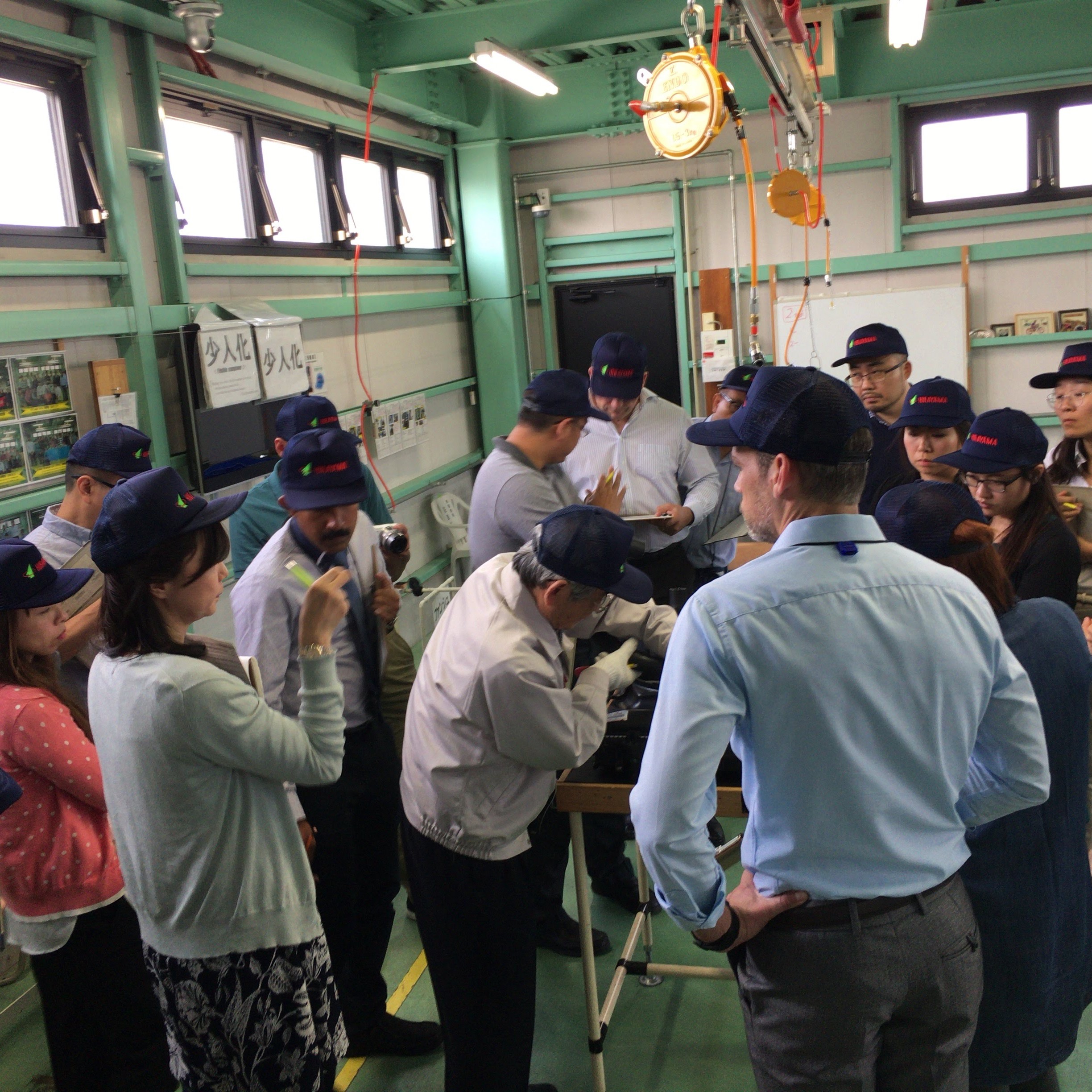
Thorough elimination of waste
TPS thoroughly eliminates various types of waste in machines, equipment, and operators. This is because waste creates waste, which ultimately puts pressure on the business itself. Based on this philosophy of “cost reduction through the thorough elimination of waste”, TPS has been established by accumulating various improvements for the purpose of efficiently producing the products of certain quality in the shortest possible time as much as necessary when received customer orders.

Jidoka (Autonomation)
“Jidoka (autonomation)” is a very simple idea. First of all, we make the work that to be the same no matter who does it, and then work on automating the work.
This allows the work to be automated with a simple mechanism, and it reduces maintenance cost and time.
In addition, the machine is introduced the system that it automatically stops when an abnormality occurs (Jidoka), and the person in charge investigates the cause of the abnormality as soon as it occurs and prevent reoccurrence.

Just-in-time
“Just-in-time” is the concept that each process produces “what you need, when you need it, as much as necessary” without stagnation.
It can respond quickly to diversified customer needs and reduce inventory costs. It is also effective in the distribution industry such as supermarket.
Consultants from major companies
with experience in over 40 countries will respond.
Please feel free to contact us.
If you are in a hurry, please call us.
(Japan time)
Except for Saturday, Sunday, holidays, Year-End and New-Year holidays
TPS specialist
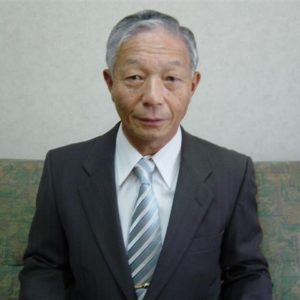
KOSAKA, Zenji
Toyota Motor Corporation, Shinmei Co. Ltd.
He was trained by Mr. Taichi OHNO, a pioneer of TPS (Toyota Production System), from the system’s infancy and had the opportunity to put the theory into practice.
To KOSAKA, who continues to pursue the principles of TPS, the driving force of ‘Kaizen’ (continuous improvement) has always been people.
His motto goes like this – “if you want someone to work, show him how to do it, explain it, let him try it, and don’t forget to praise him if he does a good job”. He is also an expert in machining and assembly.
Case example of Toyota production system RESULTS
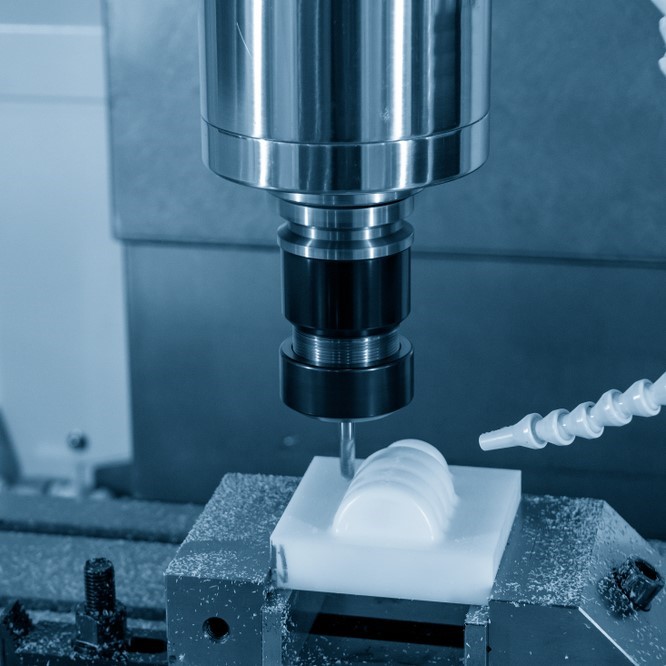
Acquired orders from two new customers
by improving quality.
We reduced most work-in-progress inventories and defective inventories, which were found throughout the factory, and reduced manpower, and now we almost no longer receive customer complaints that we had every month before. (Automobile industry / Plant manager)

Turn the factory into a showroom
in order to improve profitability
We improved 250 cases out of 300 cases pointed out by the 5S patrol conducted for one year. The factory was realized to be the showroom and also achieved cost reduction of 30 million yen per year. (Metal processing / Director)
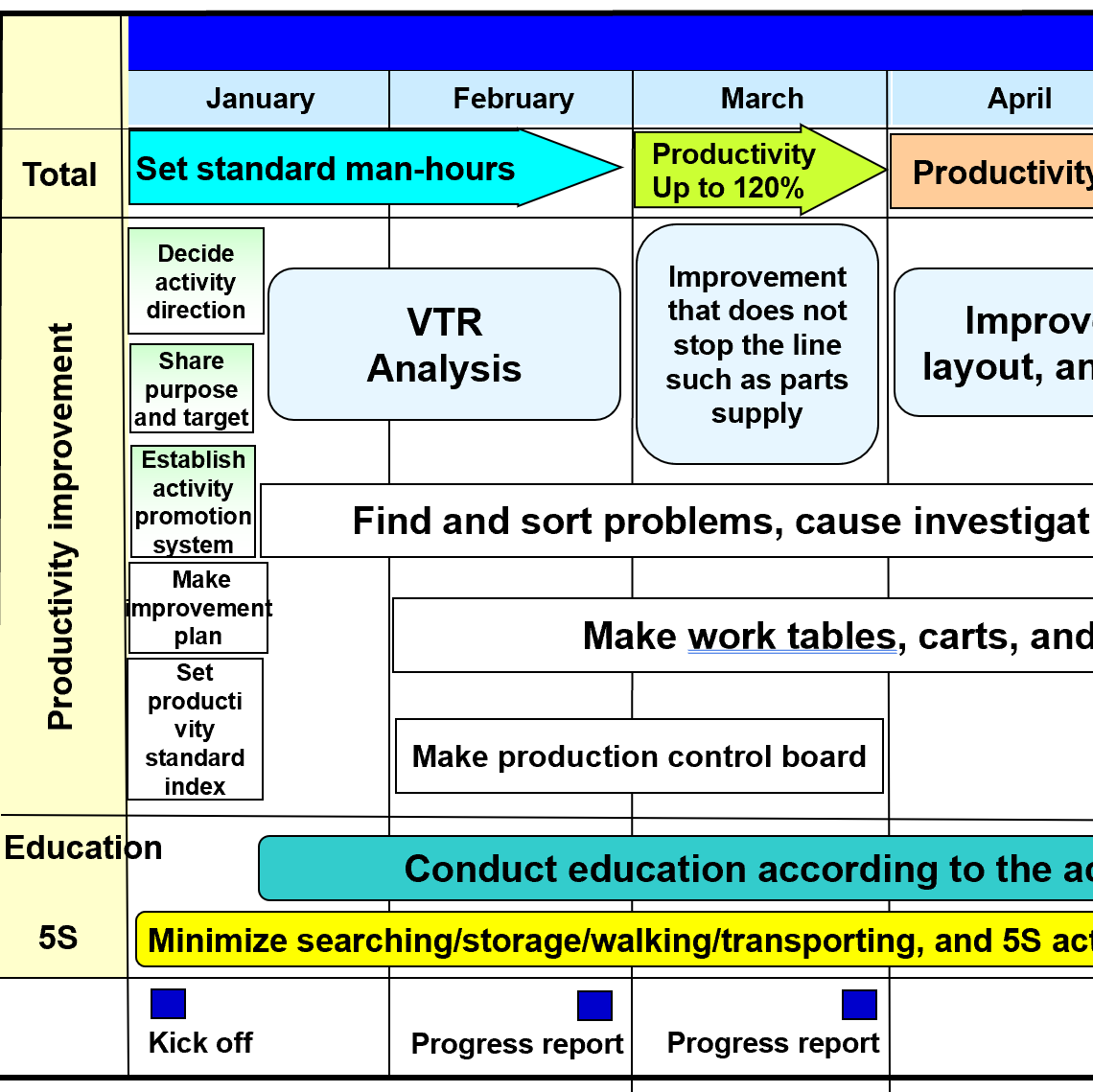
Productivity Up to 169.6%
by 6 months of improvement activities
the Japanese president decided to outsource a shop floor improvement consulting to have their shop floor checked, and asked us, Hirayama Consulting.(Auto parts manufacturer/Managing director)
3 reasons why we are chosen REASON
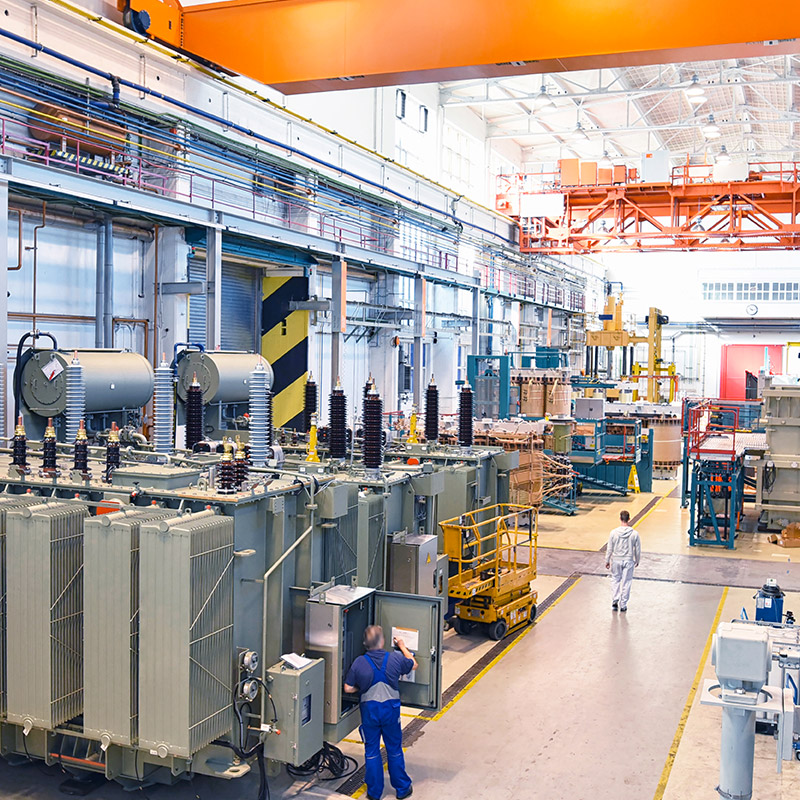
REASON 1
Improvement experience of
more than 1,500 companies in 40 countries
There must be the shop floor issues that cannot be solved by your own company alone. Improvements and reforms for manufacturing industry to survive, regardless of country or industry, need development of your human resources through practical experiences of improvement, and strengthening of your production system base.
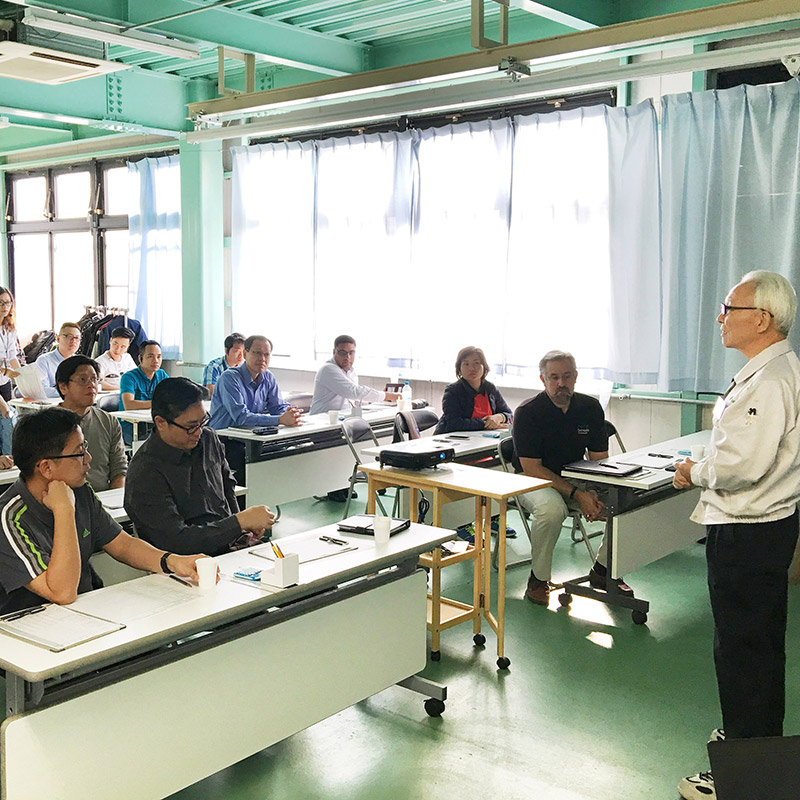
REASON 2
Consulting that shop floor workers
acknowledge our superiority and be pleased
In conventional consulting styles, there was a distance between consultant and the shop floor because it was promoted mainly consultant and management executives. Our consultant can provide a guidance without a distance between consultant and the shop floor through the guidance based on the "seeds of improvement" in a concrete way, instead of "finding fault" like a critic.

REASON 3
Continuous improvement will continue
even after the end of guidance
While strengthening "human resource development", we focus on the "overall flow" from design to purchasing, manufacturing, logistics, and production control, and provide guidance that matches the actual situation of your company. Continuous improvement will continue even after the end of guidance through the guidance that is acceptable to the shop floor workers.

